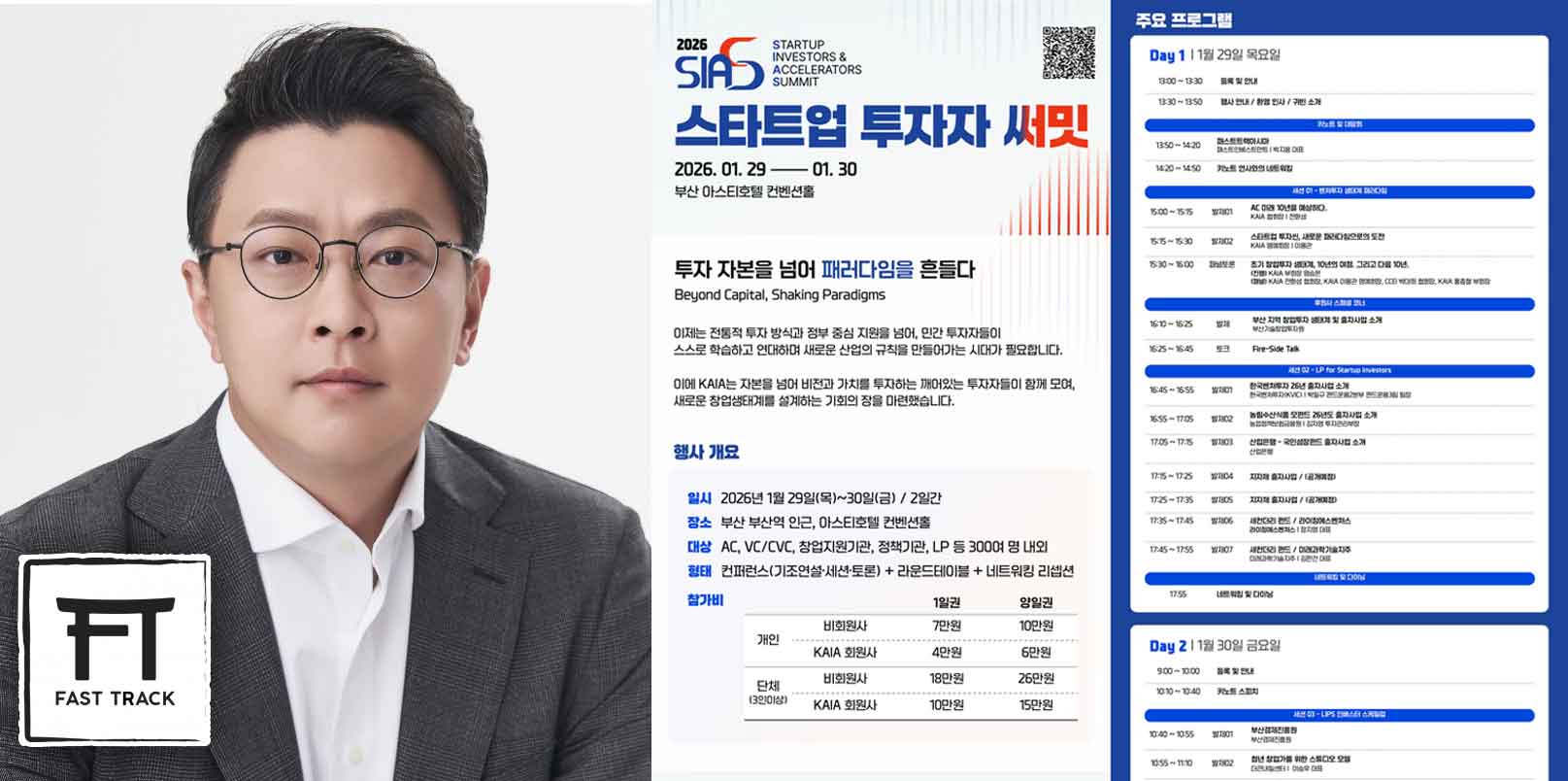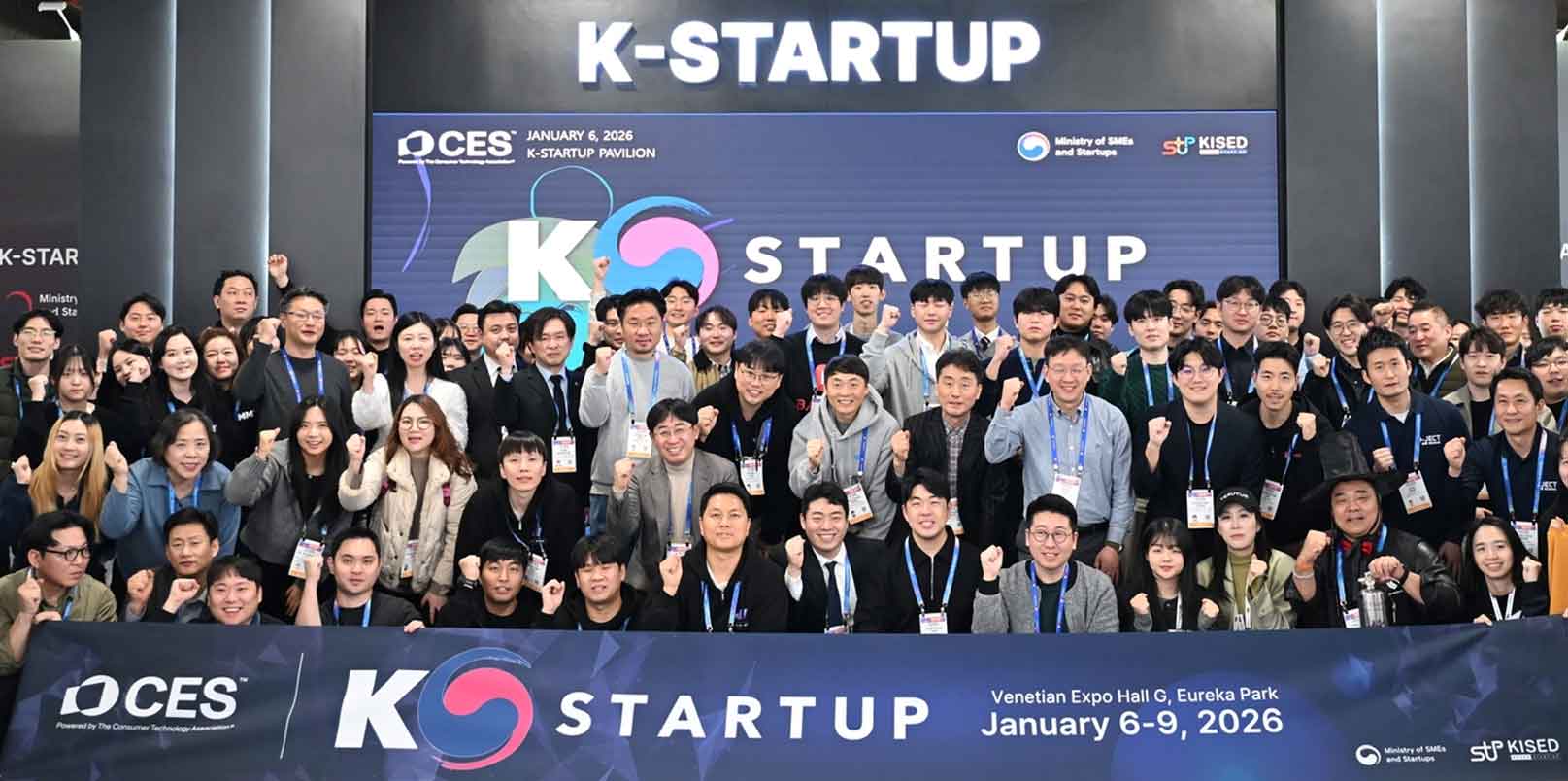COMEUP 2021 is one of the largest startup festivals in the world. The festival aims to showcase the innovative products of Korean and other international startups to global investors who will help them to grow. The COMEUP stars are thoroughly scrutinized based on their products or services and their potential to grow and are placed in the rocket or rookie league. The rocket league comprises exceptional startups that show potential in becoming next-generation unicorns, while the rookie league comprises equally impressive startups. Today’s startup showcase included startups focusing on healthcare, hospitality, logistics, education, and social media. KTD attended the showcase and summarized the promising startups that presented at the event.
Applied Life
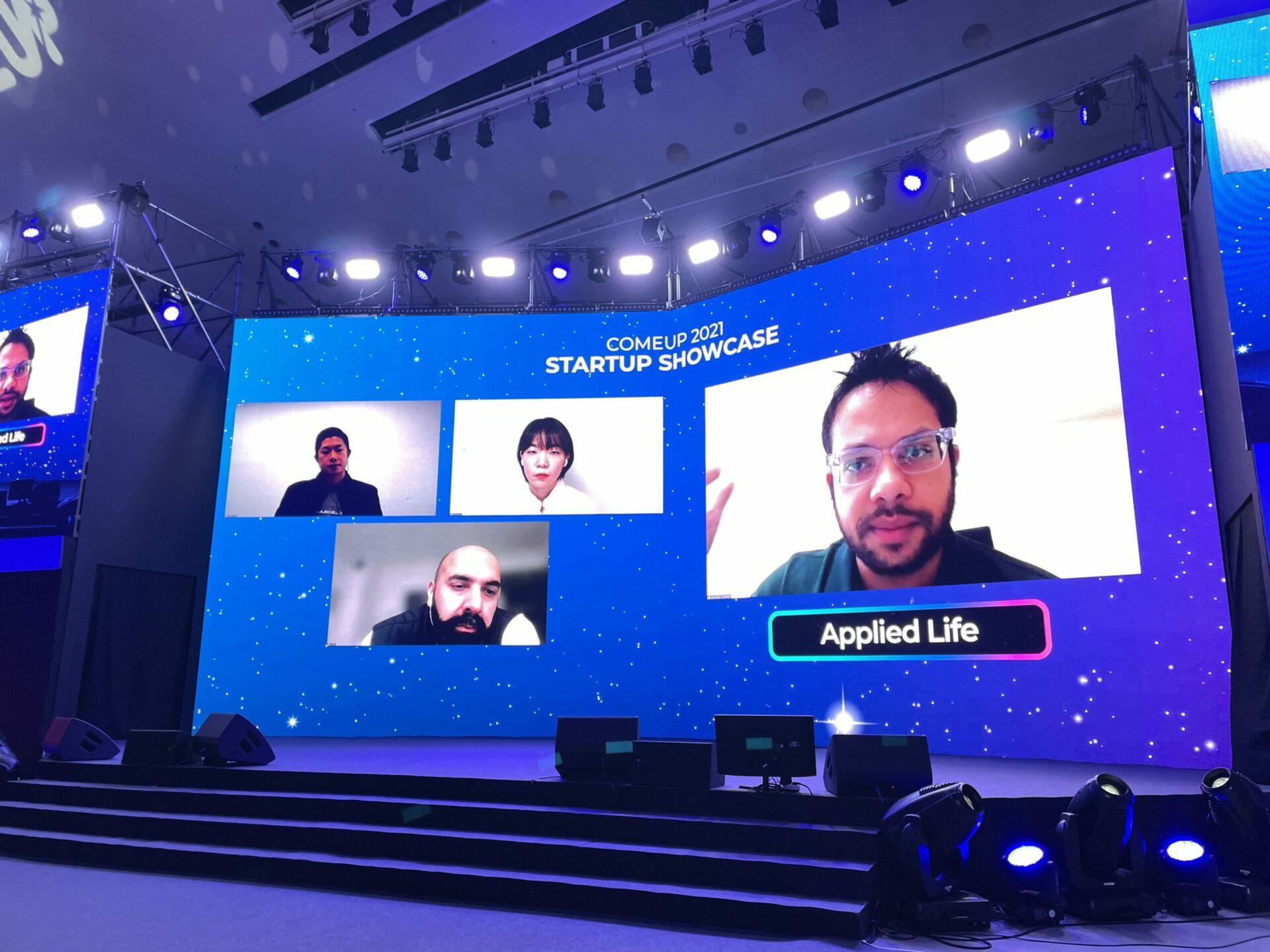
Abhishek Agarwal, the head of revenue and growth at Applied Life, began his presentation by showing how vast gender disparity was among internet users. India currently has 1.43 billion internet users, with 900 million being active internet users. However, only 380 million women internet users with a significantly smaller number of active internet users.
“The main reason for these numbers is that women have to undergo a lot of cyberbullying and sexism and in male-dominated platforms. That’s why we created Sheroes, a women-only social network. Our vision is to increase the share of women’s contribution to the GDP by creating safe online spaces for them to interact, giving women access to work and financial identity.” Said Abhishek. The Sheroes community aggregates content and community in their women-only platform. The community has three businesses for the three major areas it focuses on. Mahila Money provides financial services, Mars for human capital, and Sheco for their brand and commerce sector. The site has 5 million active monthly users and aims to have more than 15 million in five years. Applied life seeks to have 5 million women in its commerce business, 100,000 in its human capital, and 10 million women in its finance business. He ended his presentation by saying, “Women go through a lot regarding families and maintaining their homes. Giving them a safe platform not only allows them to express themselves but also equips them with the necessary resources they need to grow themselves.”
Axgen

Axgen is a US-based startup that uses an athlete’s genetics to predict and prevent sports-related injuries. According to Dr. Stuart Kim, CEO of Axgen, professional athletes incur $5 billion in salary losses each year due to injuries, with amateur ones having the most injuries at 30 million each year. Axgen is a genetic testing startup that analyzes an athlete’s DNA to look for genetic warning signs of different sports injuries such as ACL tears and concussions. The markers they test are unique to Axgen and are a million times more accurate than today’s genetic testing. Axgen has already signed 2 EFL teams, players from the top NFL and football teams, Olympians, and dozens of triathlon and running groups.
Pouch Nation
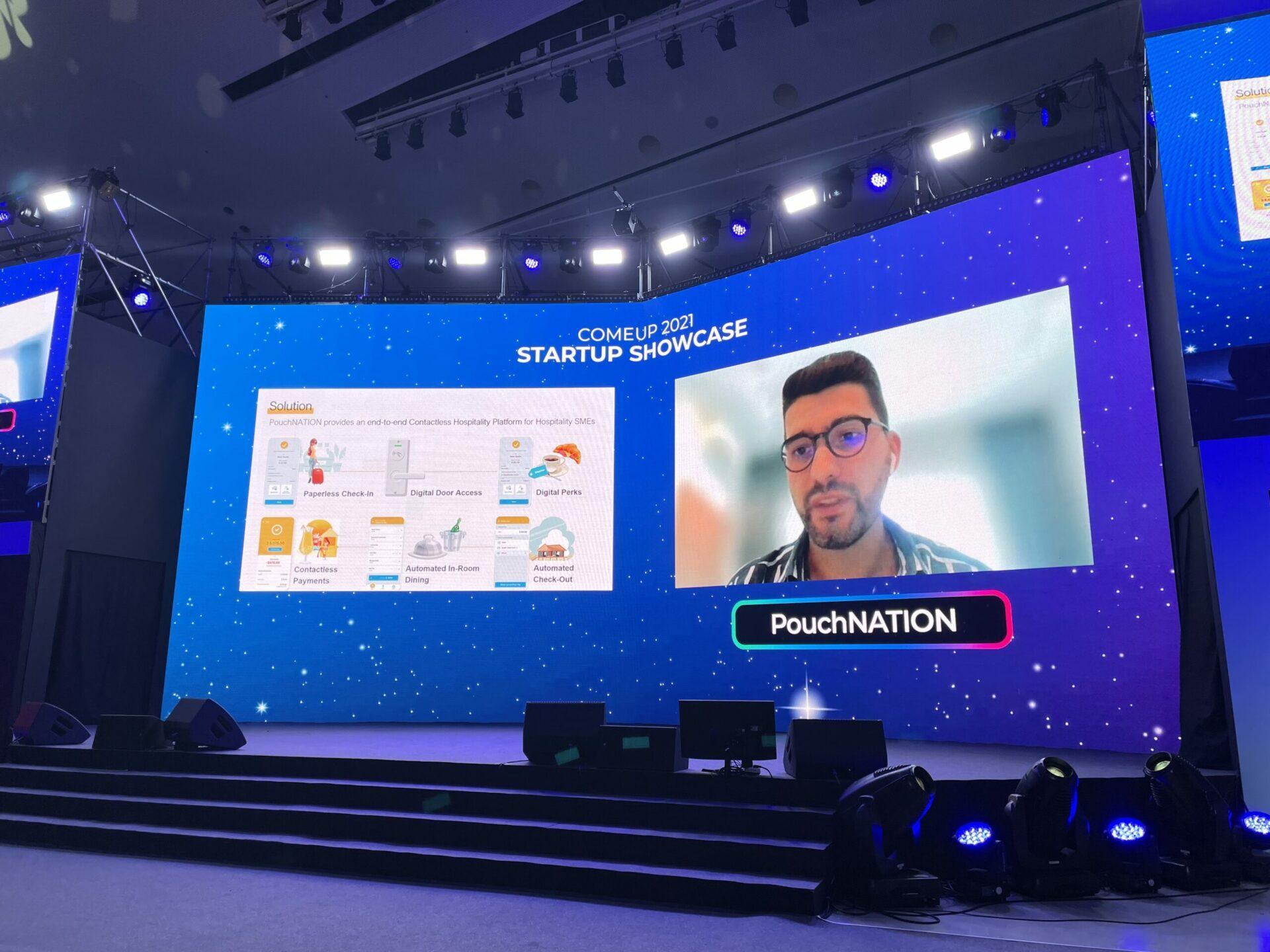
Ricardo Santos, the MD of Pouch Nation, began his speech by pointing out how the COVID-19 pandemic greatly affected contact services such as those offered in the hospitality sector. Most hotels and restaurants rely on manual methods when guests check-in or out of their premises which contravenes pandemic protocols. Pouch Nation is a SAS startup that digitizes SMEs in the hospitality sector by providing an all-in-one cashless service. It offers paperless check-in, digital door access, digital perks, contactless payments, automated in-room dining, and automated check-out to guests in the hospitality sector. Guest can use the system using an NFC chip that can be worn as a wristband or keyholder. They can also access the services using an app on their mobile phones. SMEs using the service are charged a monthly subscription fee of only $70 for a software license. Currently, the firm is based in South America but is making in-roads in Russia and South East Asia.
Tag Hive
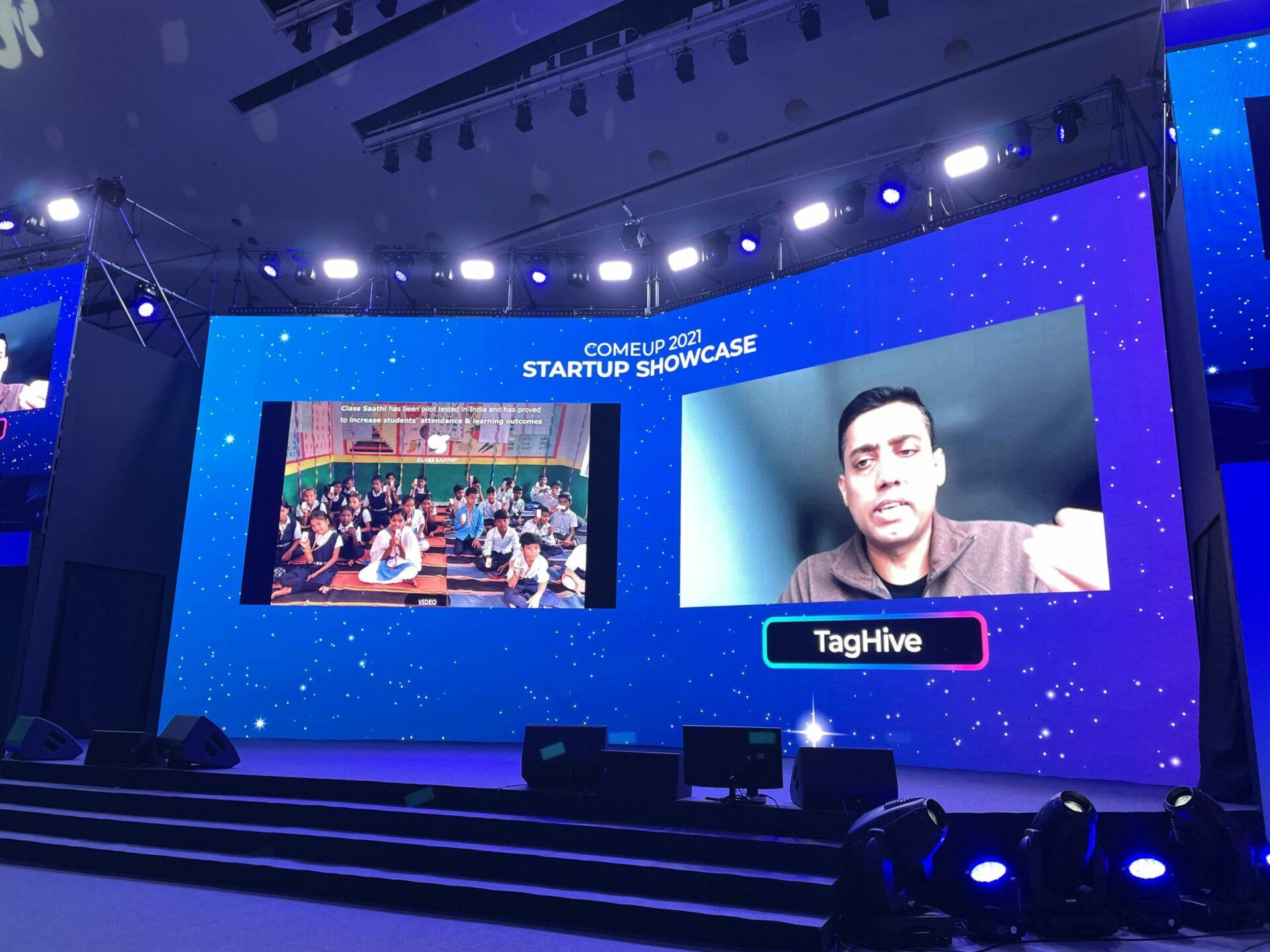
Tag Hive is a technology startup focused on improving the education sector. Its vision is to build a unified learning platform for over 1 million public schools in India. According to Pankaj Agarwal, CEO of Tag hive has created the world’s first clicker system for students and mobile app for teachers and administrators. Their clicker system works by teachers reading questions for the class, and the student responds by choosing the correct answers on the clickers. After school, the students review the questions using the mobile app on their parent’s or teachers’ phones. The app displays scores for each student and gives personalized study recommendations based on these scores. The data is gradually backed up in the cloud allowing state and national education boards to analyze the scores and take appropriate actions. The clicker comes with an inbuilt battery meaning that it can be used in schools without internet or electricity.
Quota Book
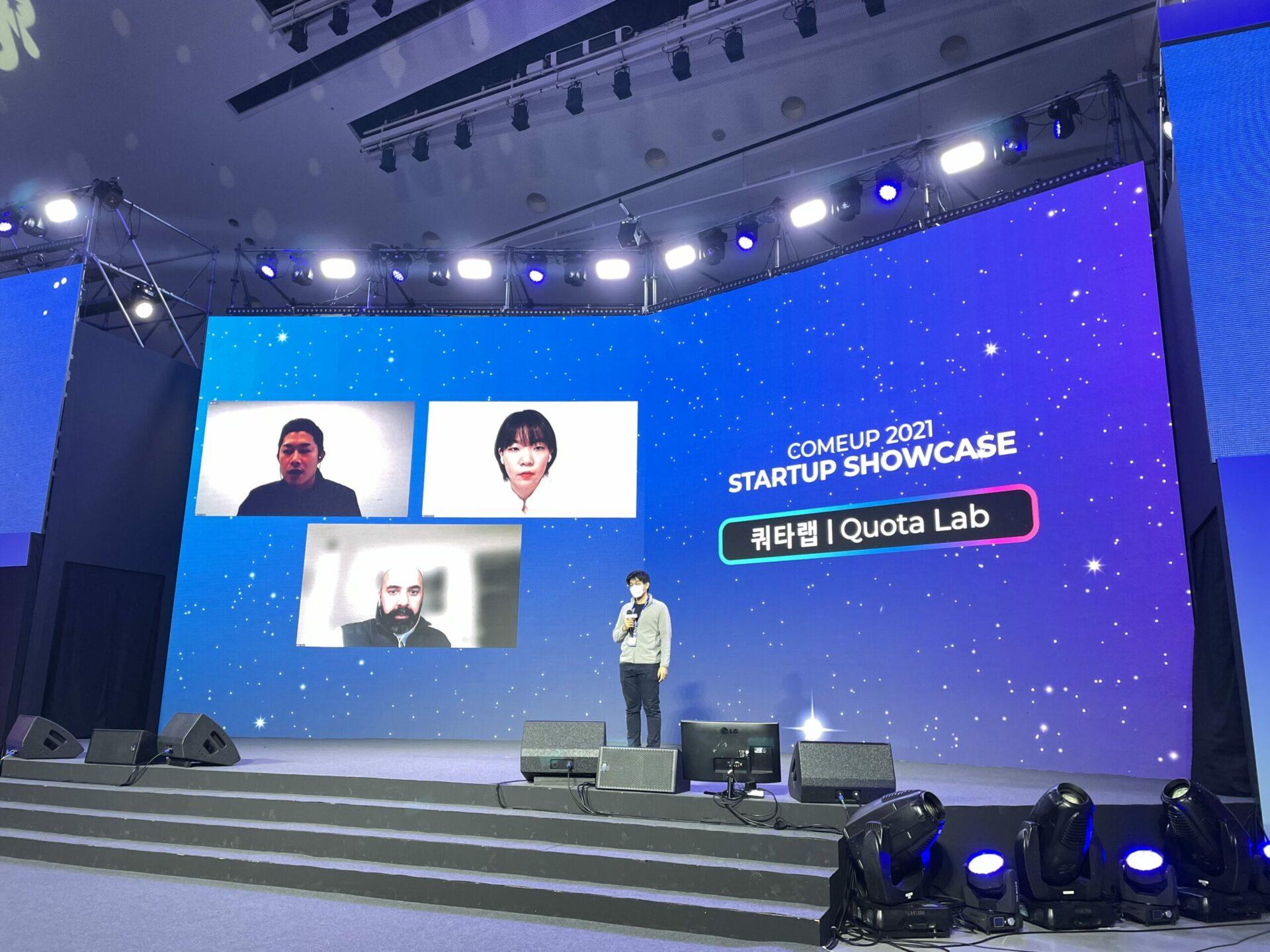
Andy Choi, CEO of Quota book, started his presentation by stating just how hard it was to manage the equity of hundreds of employees and assets. “We started Quota Book because the way equity data is being managed is far from efficient. There are plenty of problems that investors and companies face in this field with there being little to no truth when dealing with equity data,” he stated. Quota Book specializes in equity management by utilizing over 61 technologies for its website, including SPF, Viewport Meta, and other mobile compatible technologies to help companies make their equity data more efficient. The startup has raised over $5 million in four funding rounds and seeks to partner with more firms to improve its research and distribution system.
Today’s startups were innovative and motivational, choosing to tackle existent societal issues such as the high spread of highly infectious diseases, disparities in gender, education, and health. These startups had promising sales cycles, target markets and set unique pricing and distribution strategies such as competitive pricing to gain a competitive advantage in their current and future markets.




